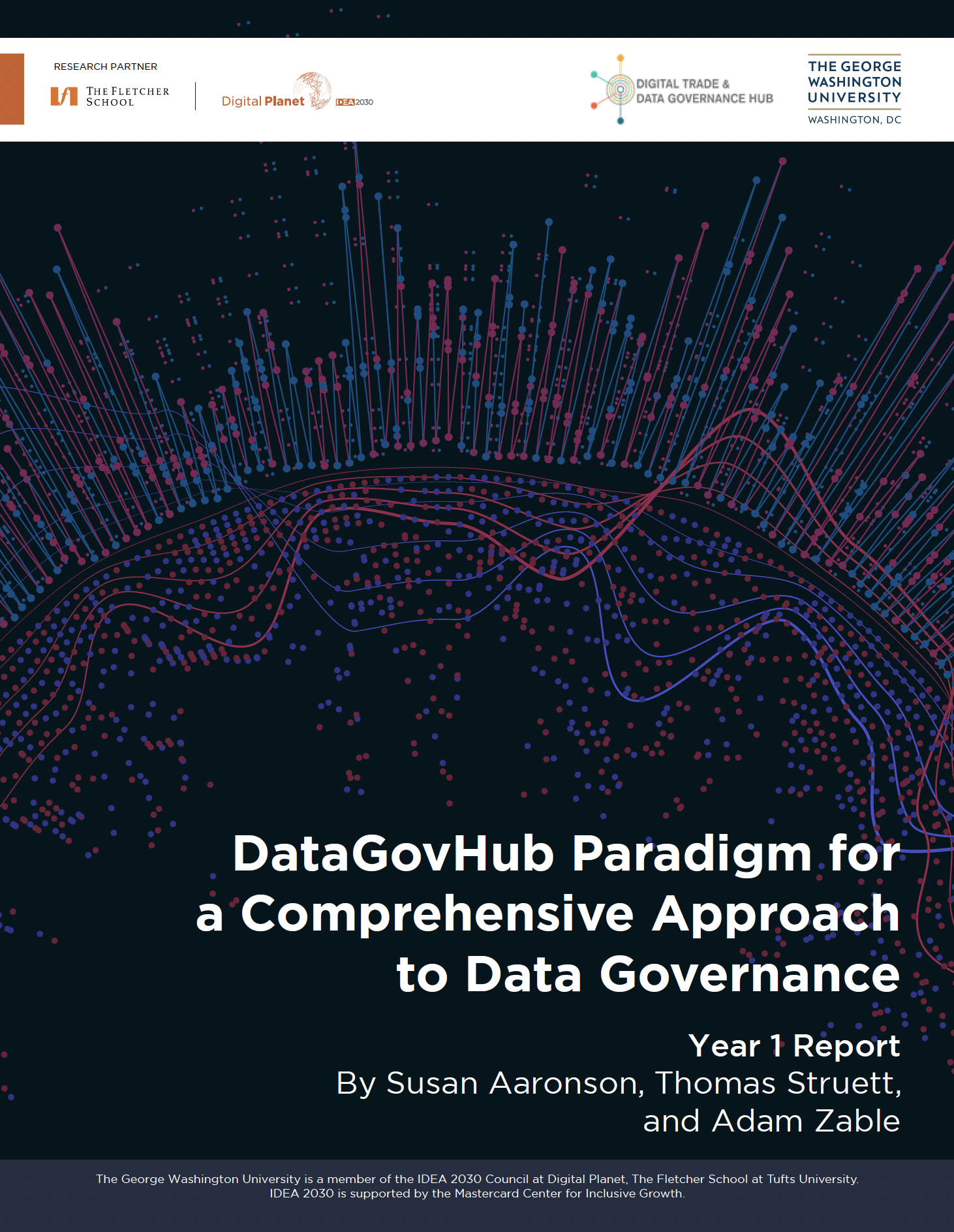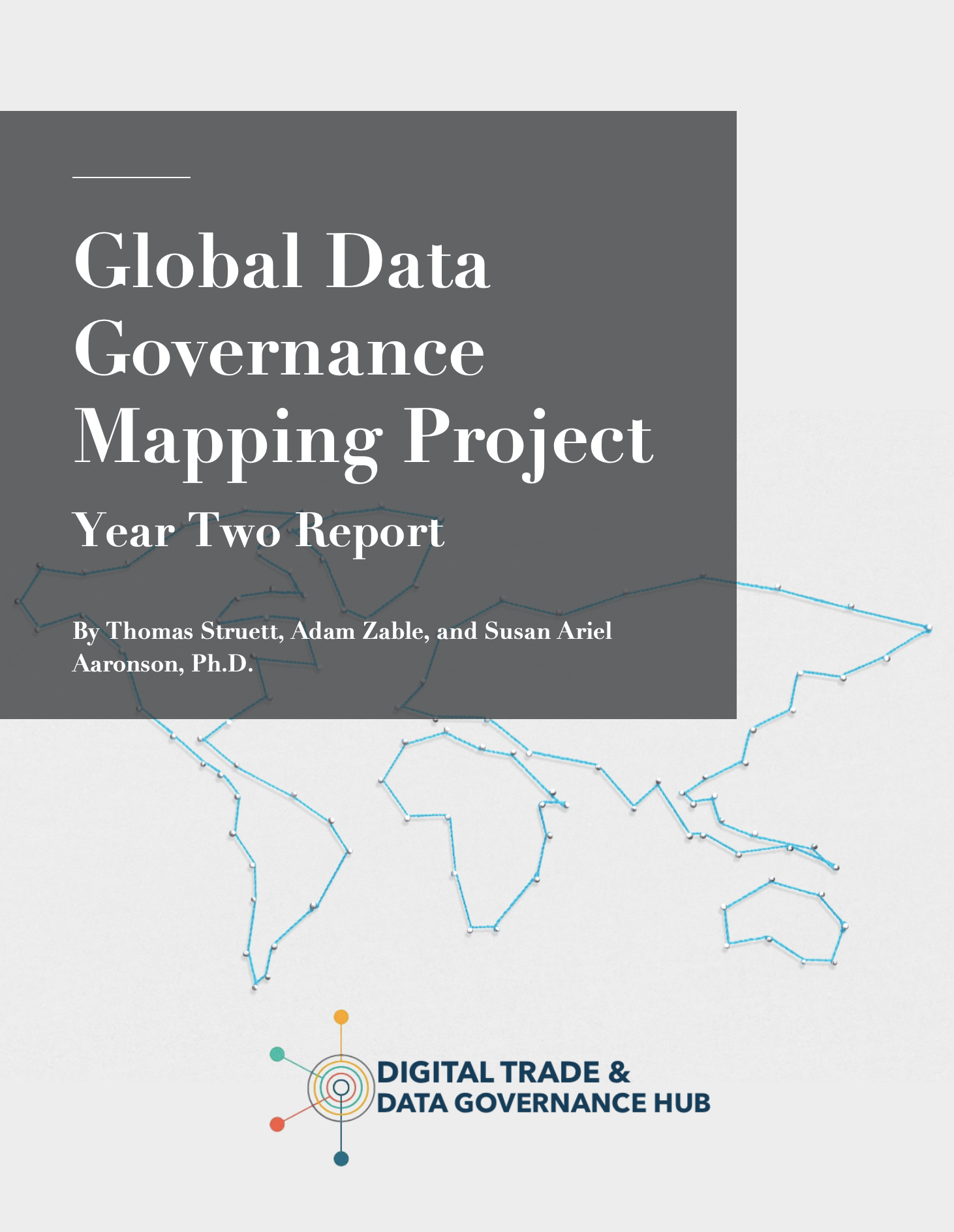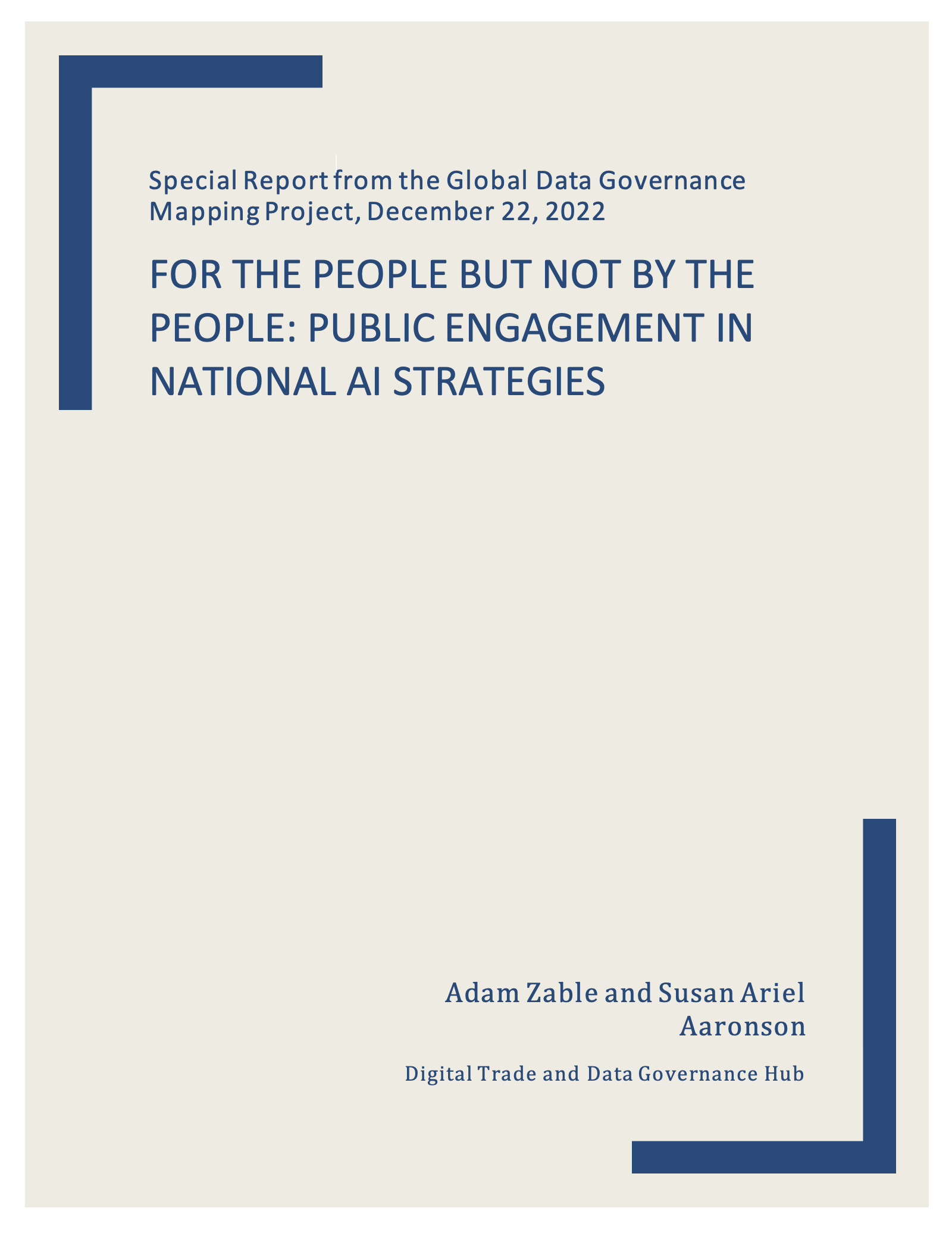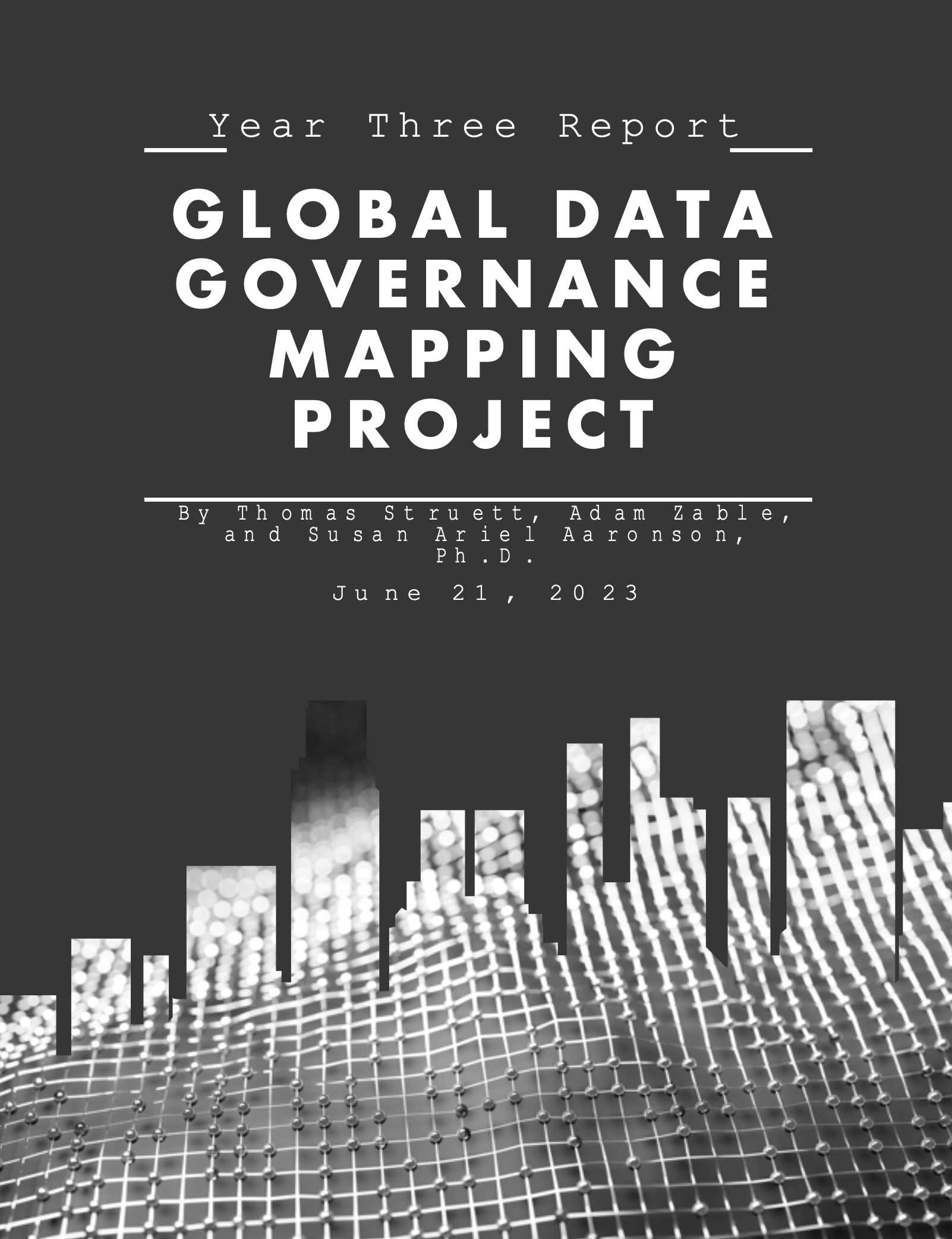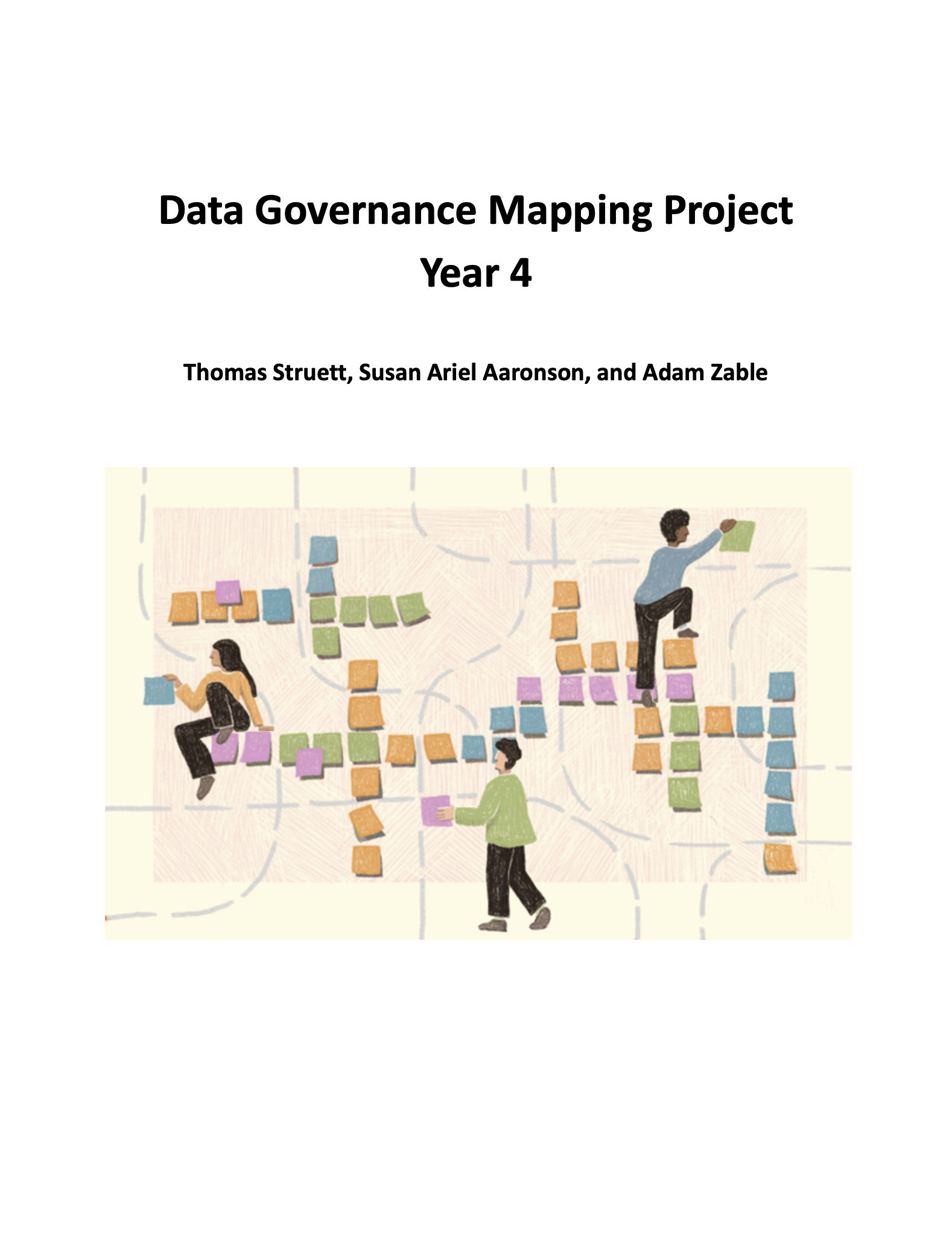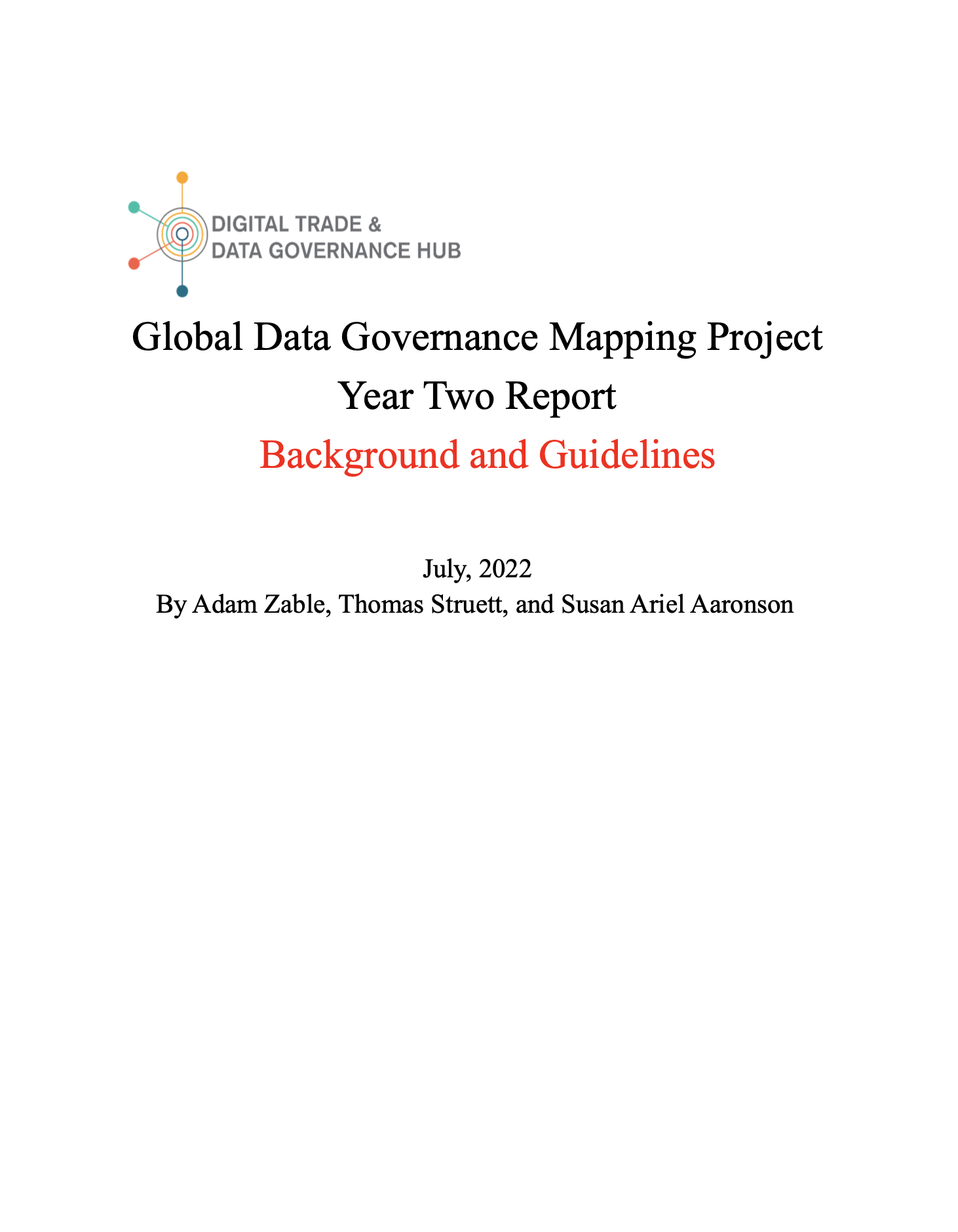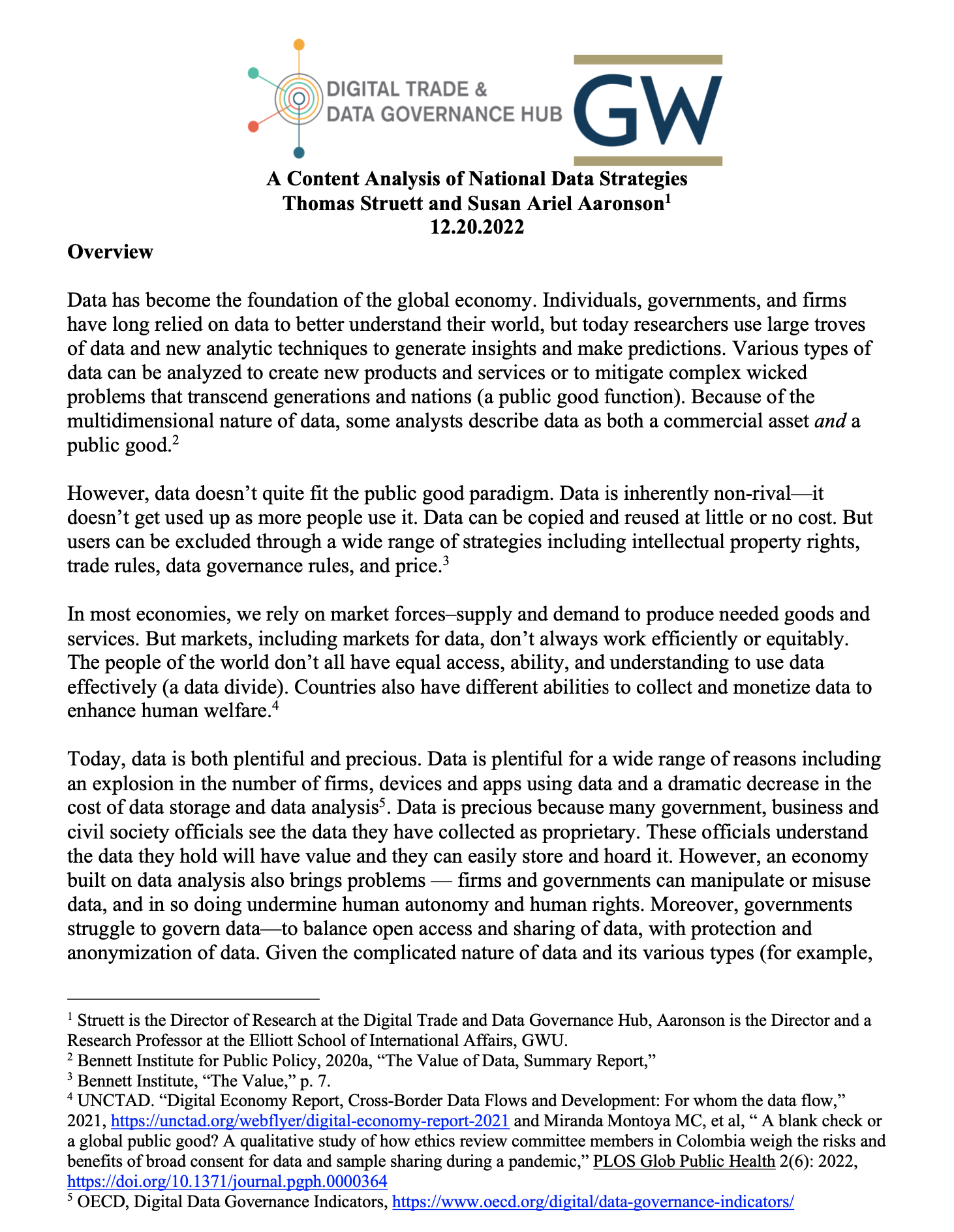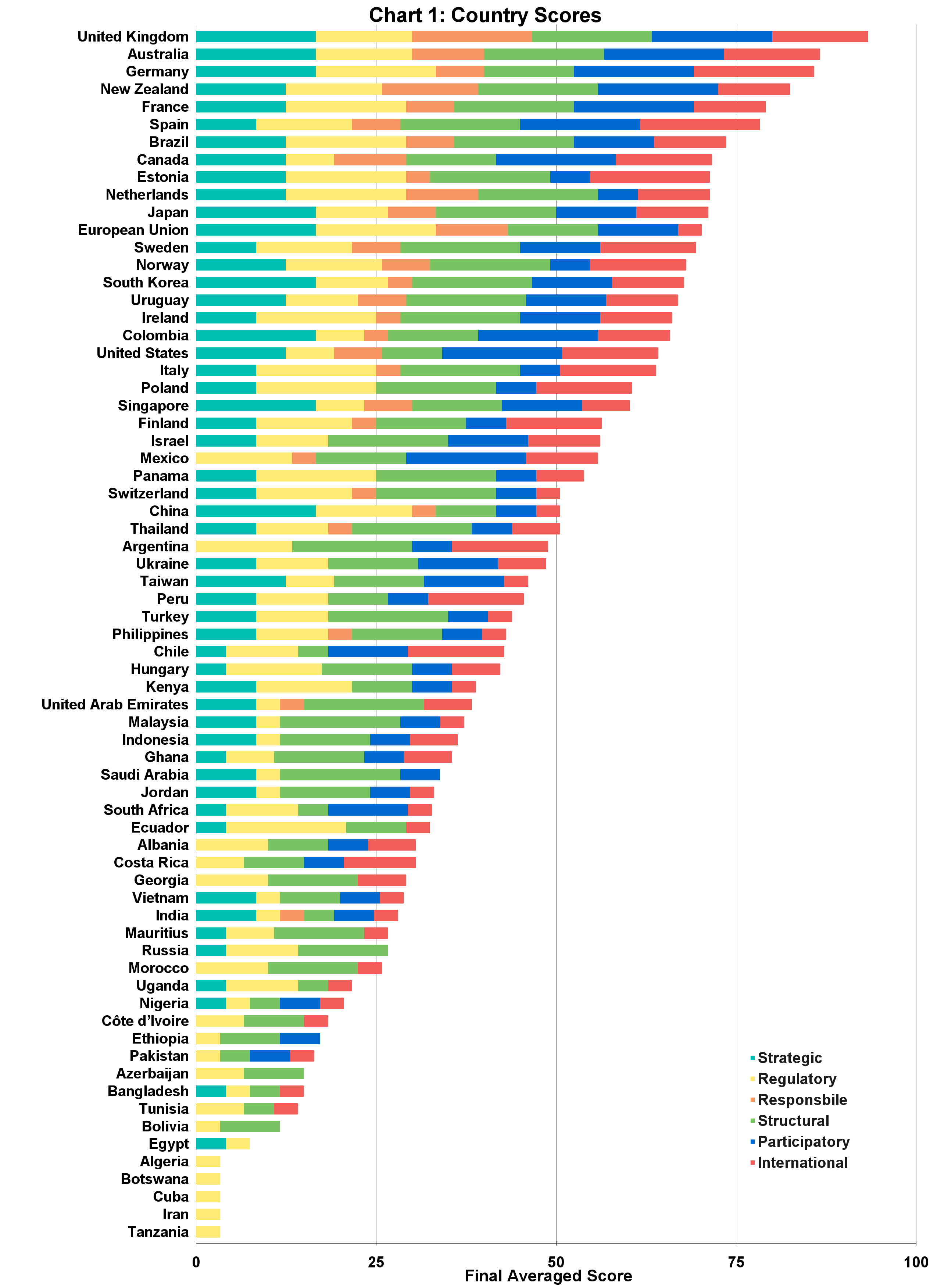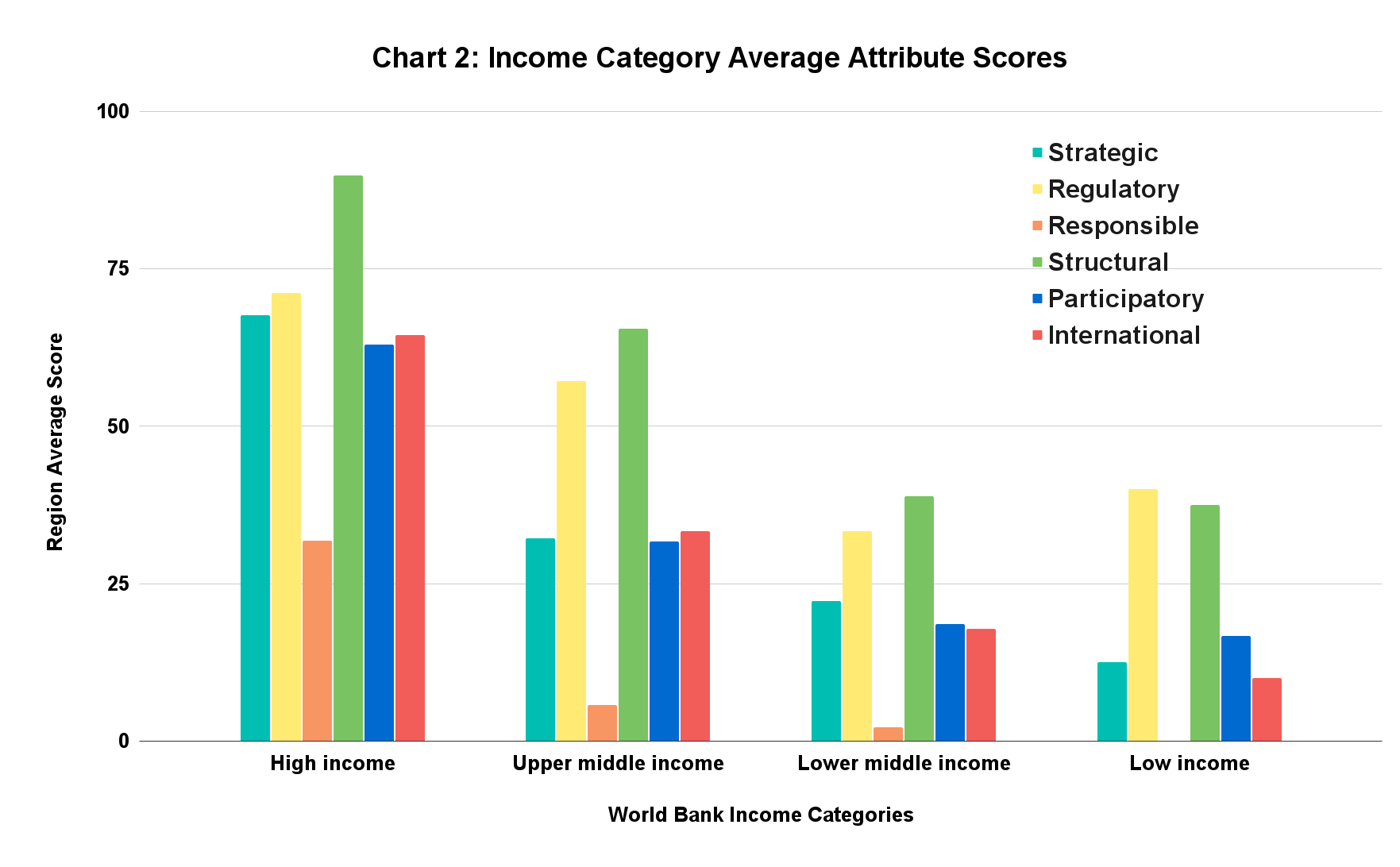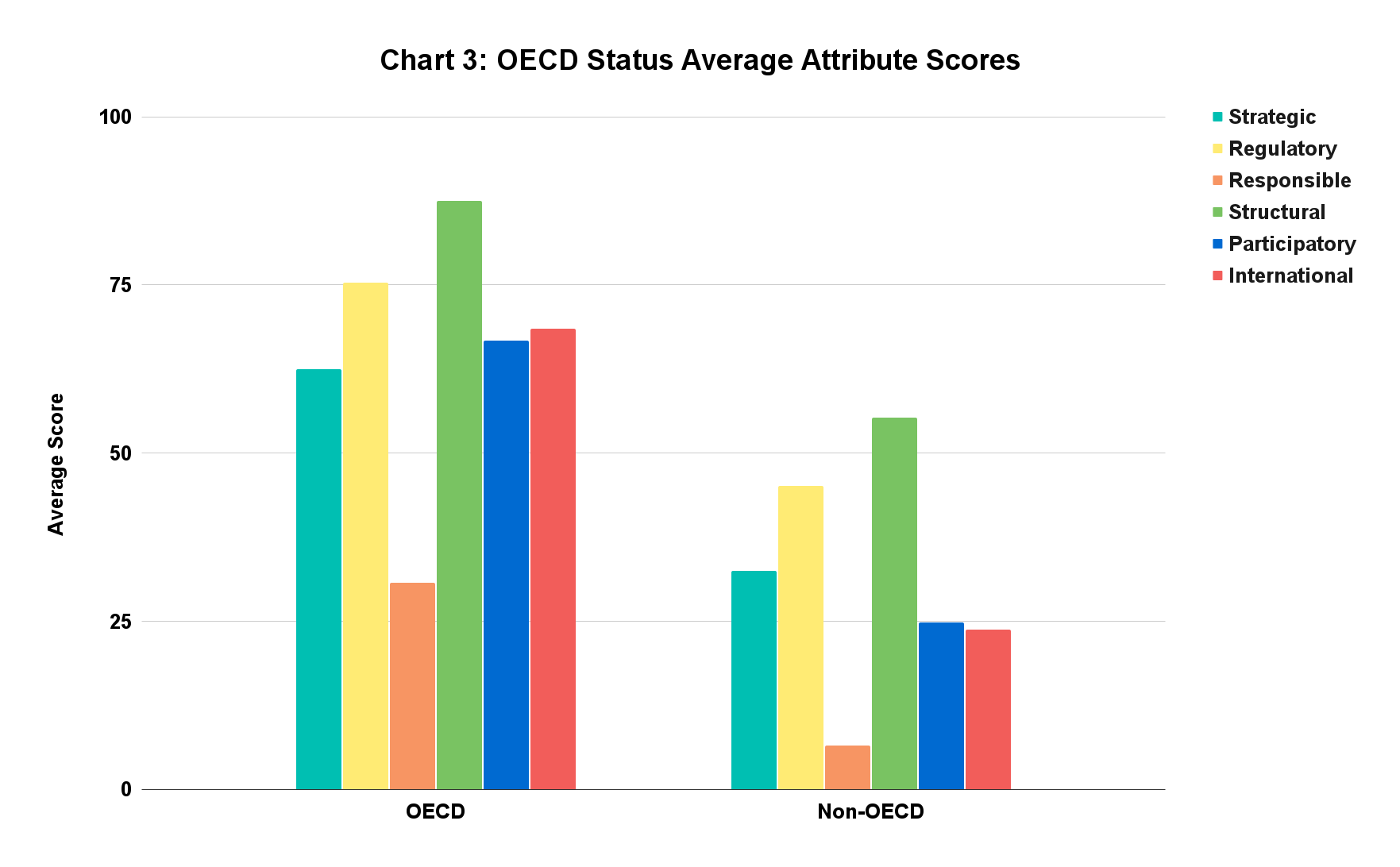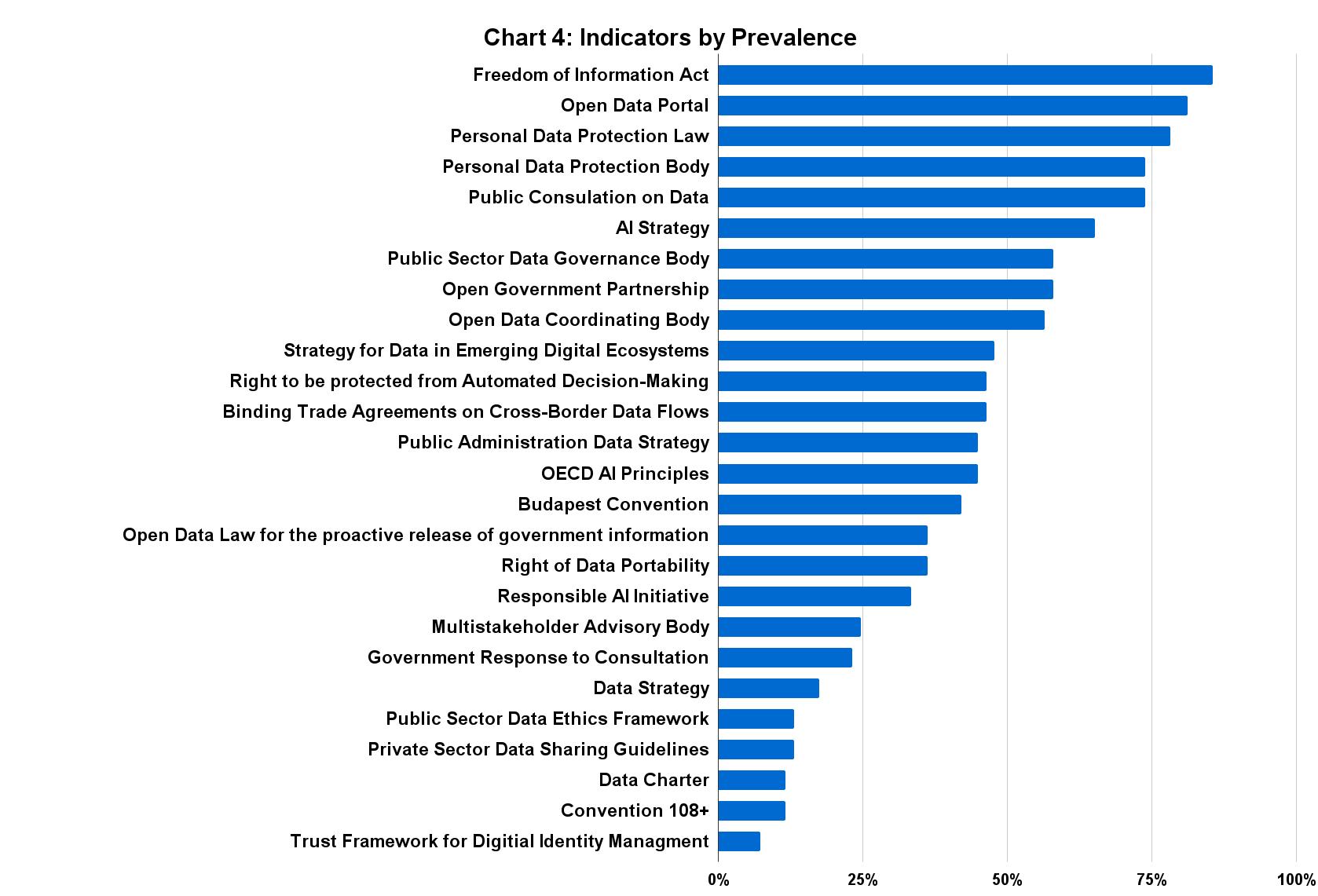The World Bank defines data governance as "creating an environment of...norms, infrastructure policies and technical mechanisms, laws and regulations for data, related economic policies, and institutions that can effectively enable the safe, trustworthy use" of various types of data. "A robust and effectively implemented data governance framework can strengthen trust in the data system, thereby incentivizing the use of data-driven products and services, increasing their value, and ensuring a more equitable distribution of benefits. In effect, data governance enforces the social contract around data, by applying the principles of trust, value, and equity." A comprehensive approach includes strategies, policies, processes, and organizational structure. A comprehensive approach also governs different types of data use and re-use.
The Hub’s metric includes 6 attributes of data governance (strategies; laws and regulations; structural changes; human rights and ethical guidelines; involving their public; and mechanisms for international cooperation). We then used the metric to assess 68 countries plus the European Union. We selected nations from different regions of the world, varied levels of digital prowess, and different levels of income. After examining evidence for each indicator, we graded each nation on its performance. The map below indicates total scores for each of the 68 nations and the European Union.

